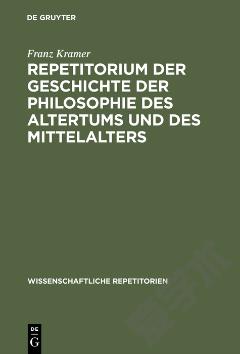Ancient and Medieval Memories: Studies in the Reconstruction of the Past
Introduction Part I. The Critical Texts of Antiquity: 1. Plato 2. Aristotle 3. Cicero 4. Pliny and Roman naturalists on memory Borges's Funes the Memorious 5. Plotinus and the early neoplatonists on memory and mind 6. Augustine 7. Augustine, De Trinitate Part II. The Practice of Memory During the Period of Transition from Classical Antiquity to the Christian Monastic Centuries: 8. The early monastic practice of memory: Gregory the Great Benedict and his rule 9. Bede, monastic grammatica and reminiscence 10. Monastic memory in service of oblivion 11. Cistercian 'blanched' memory and St Bernard 12. Twelfth-century Cistercians: the Boethian legacy and the physiological issues in Greco-Arabic medical writings Part III. The Beginnings of the Scholastic Understanding of Memory: 13. Abelard 14. Memory and its uses: the relationship between a theory of memory and twelfth-century historiography Part IV. Aristotle Neoplatonised: The Revival of Aristotle and the Development of Scholastic Theories of Memory: 15. Arabic and Jewish translations of sources from antiquity: their use by Latin Christians 16. John Blund, David of Dinant, the De potentiis animae et objectis 17. John of la Rochelle 18. Averroes 19. Albert the Great 20. Thomas Aquinas Part V. Later Medieval Theories of Memory: The Via Antiqua and the Via Moderna: 21. John Duns Scotus 22. William of Ockham 23. The legacy of the via antiqua and the via moderna in the Renaissance and beyond Conclusion.
{{comment.content}}








 京公网安备 11010802027623号
京公网安备 11010802027623号